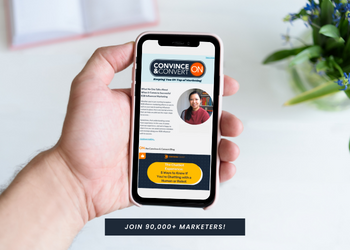 Guest post by Indra Gardiner, founding partner and COO at BG Creative. She spends her days thinking about social media, public relations and digital strategies for her agency’s consumer focused clients. You can find her on Twitter or, if you’re lucky, behind a rolling pin making a fresh pie.
Guest post by Indra Gardiner, founding partner and COO at BG Creative. She spends her days thinking about social media, public relations and digital strategies for her agency’s consumer focused clients. You can find her on Twitter or, if you’re lucky, behind a rolling pin making a fresh pie.
Hide! The Lawyers Are Coming
Social networks give people the ability to share incredible volumes of content. People are sharing photos, ideas, writings and video. All that stuff? It’s called intellectual property and in each case it belongs to somebody.

A recent presentation at the PRSA Counselors Academy, by Michael Lasky, Partner and Chair of the Public Relations Law Practice at the law firm of Davis & Gilbert in NY, provided a wake up call to those in attendance about how the law is slowly creeping into the social landscape and why responsible marketers had better pay attention. Download Michael’s presentation here.
Been Caught Stealing
Let’s start with content creation and copyright issues. We all know how much “lifting” goes on in the Internet. Those who create content in an environment of “sharing” often find their ideas, photos and sometimes entire paragraphs repurposed without their permission. Having clear language on blogs and websites puts the public on notice about your position vis a vis copyright. In other words put a copyright, all rights reserved on your content or the bottom of your blog. One day you may need to point to it if you or your client is ripped off and you want to take legal action.
Read the fine print. Have you read the Terms link provided by Facebook, Twitter or YouTube? In the case of Facebook, once you sign up for an account and click agree, you have granted them non-exclusive, transferable, sub-licensable, royalty-free, worldwide rights to use any IP (intellectual property) content that you post on or in connection with Facebook (“IP License”). Did you catch that part about being transferable and sub-licensable? Basically they can take that gorgeous photo that you paid a photographer to shoot for your product, hotel or client and use it however they want. You don’t lose ownership rights, but you do lose control over how your content can be used. This is particularly important when managing branded client materials. Did your content creator (photographer, writer, designer) give you permission to post their work on Facebook or YouTube and hand over their control to Mark Zuckerberg?
A Policy of Protection
While speaking recently to a room full of ad agency folks, I asked the audience if they had a social media policy in place for their staff. I found myself facing a room full of blank stares. Yikes. If your team uses social media at work, particularly for clients, you’ve got to have a policy. Todd Defren and Dell have both shared excellent examples to build from.
The FTC encourages social media policies be in place and reviewed. Remember all the hubbub last fall when the FTC released its Guidelines for Blogging and Social Media? Marketers have a responsibility to ensure that bloggers are providing disclosure and that statements are not misleading or unsubstantiated.
Companies must also uphold privacy laws. In 2007, a breach of contract suit was brought against 1-800-Flowers.com Inc. because the plaintiff’s wife learned about her husband’s infidelity directly from the online florist who, despite a privacy policy on its site, sent a card to their home thanking him for his business. She promptly divorced him so he turned around and sued them.
Having a privacy policy or a social media policy is not enough. You have to train employees too. Having a social media policy is considered an enforcement action by the FTC, which can be important if you are sued for misleading or unsubstantiated claims on a blog or by a blogger. Plus it provides the opportunity to clearly state your transparency policies around actions like employees posting on discussion boards for clients, endorsements and objectionable content.
We’re going to see more and more case law around social media, intellectual property and online piracy and privacy. And the lawyers will be ready.
(photo by Mark Collins)

